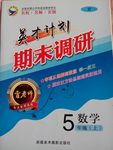题目内容
—You should be careful when .
—Yes, I will. I want to know when to have a rest.
A. driving; stopping B. driving; to stop
C. to drive; stopping D. to drive; to stop
B 【解析】句意:——你开车时,应该小心。——是的,我会的。我想要知道什么时候停下来休息。when引导的时间状语从句的主语,与主句主语是同一个主语,谓语是be(am, is,are,were,was)时,用省略结构,省去主语和be动词,故第一空when you are driving,省略成when driving。作为动词know的宾语,用疑问词+to do sth,故用to stop,故... 名师点拨卷系列答案
名师点拨卷系列答案 英才计划期末调研系列答案
英才计划期末调研系列答案请认真阅读下列短文,并根据所读内容在文章后表格中第56-65小题的空格里填入一个最恰当的单词。
注意:每个空格只填1个单词。请将答案填写在答题卡标号为56-65的相应横线上。
Wind is a powerful force(力量) in nature. Wind energy is one of the causes of great waves in the world’s oceans. Winds can help create powerful storms, but wind is a force you can’t see but can surely feel. Its power can be used to create electricity for cities and the countryside.
Wind can also power many expressions in American English. Let’s start with a simple one. If you run like the wind, you are a very fast runner. After running, sometimes you can feel full of energy. The runner gets what we call a second wind. We use this expression when we are tired, but then get more energy to finish something. For example, sometimes I feel tired after work. But after a short rest and a cup of tea, I get my second wind. I’m ready to do something fun with my friends and family.
If you are doing something difficult, it is good to have the wind at your back. In this way, it is easier to go forward. It’s always more difficult to do something in a strong wind–unless you are sailing.
Knowing the direction of the wind is the most important part of sailing. When wind fills a sail, it makes the boat go faster. If you take the wind out of someone’s sails, you prevent them from reaching their goals. You create a barrier(障碍) or stop them in some way. In life, it’s lucky to have friends who want to fill your sails with wind and not take it out.
Let’s turn from sailing to music. Many songwriters use the image(形象) of wind in their songs. If something such as an idea is blowing in the wind, it is being discussed but has yet to be decided. When a singer sings “you don’t need a weatherman to know which way the wind blows,” he means that you don’t need someone in power to confirm something for you. Just trust yourself. You can find it out on your own. So, when you know which way the wind blows, you know what is going on.
Now you know which way the wind blows. Then how can you use these expressions properly? First, read them aloud and keep them in mind. Then, practice using them and test yourself. You know, practice makes perfect.
Do you know which way the wind blows? | ||
A powerful force in nature | Wind may 1. great waves in the world’s oceans, can help create storm and be used to create electricity. | |
Wind and its 2. | About running | A person who runs like the wind is a very 3. runner. When the runner gets a 4. wind after running, he feels full of energy again. |
About sailing | If you are sailing, it’s much 5. to go forward with the wind at your back. When a sail is 6. with wind, the boat will go faster. You are 7. to have a friend who wants to take the wind out of your sail. | |
About music | The image of wind is 8. by many songwriters. When an idea is blowing in the wind, it hasn’t been decided and needs 9.. When you know which way the wind blows, you know what is going on. | |
10. on learning | Read them aloud and remember them. Practice using them and test yourself. |

